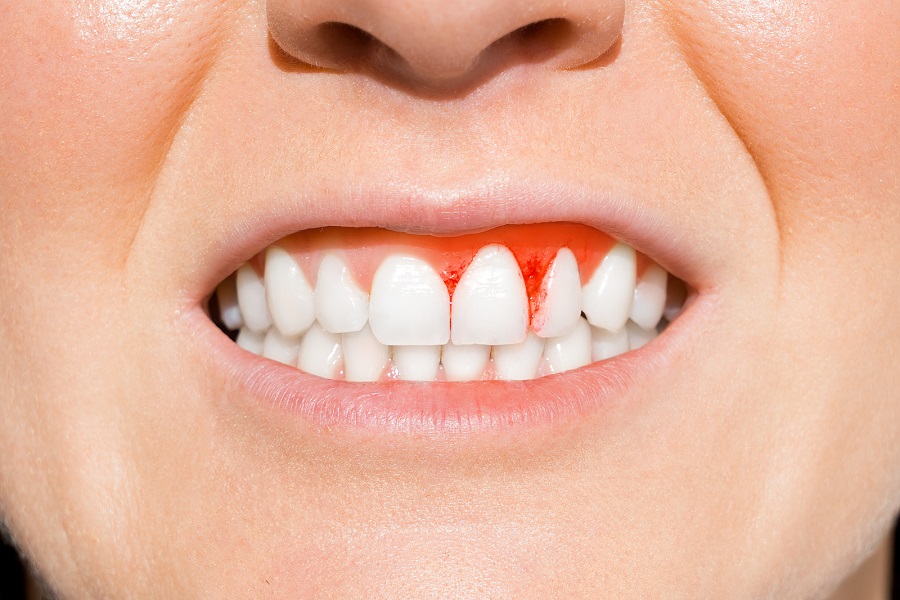What Causes Gum Disease?
Posted by Dr. Bishay on Aug 31 2022, 06:05 AM
Gum disease, also known as periodontal disease, is an infection of the gum tissue. If left untreated, gum disease can lead to tooth loss. Healing from gum disease can take a long time. Additionally, it can lead to other health problems.
For example, if you have gum disease, you may also have a higher risk of diabetes, heart attack, or stroke. Scientists are still studying the link between gum disease and other health conditions, but they believe that inflammation in your mouth may travel throughout your body.
A variety of factors causes gum disease, such as:
Poor Oral Hygiene
Periodontal disease occurs when bacteria build up along the gum line. When plaque is not removed, it turns into hard tartar (calculus). As tartar develops, it pushes against the gums, causing them to recede. The longer bacteria and tartar are allowed to remain; the more gum tissue is lost. Eventually, bacteria can enter the bloodstream, causing serious health problems. This is why it’s so important to practice good oral hygiene and visit our dentist twice a year.
Tobacco Use
Smoking and other forms of tobacco use are one of the most significant risk factors for gum disease. Smoking affects your gum tissue, causing your gums to recede, weakening the bone that supports your teeth, and increasing your risk of oral cancer. Tobacco use can also affect your overall health. In addition to increasing your risk for gum disease, it can also lead to heart disease, lung cancer, and stroke.
Genetics
When it comes to gum disease, many believe it is caused by a lack of flossing and brushing. However, genetics can play a large role in the development of gum disease. In fact, about 30% of people don’t develop gum disease because of genetics. If you or your partner has gum disease, you may want to be more diligent with brushing, flossing, and regular dental cleanings.
Hormonal Changes
Hormonal changes are not a direct cause of gum disease, but they can be a contributing factor. Many women experience hormonal changes during their pregnancy. This can result in swollen, red, and bleeding gums. Hormonal changes during menopause can also make your symptoms worse.
Pregnancy
Pregnancy causes many hormonal changes that can increase a woman’s risk for gum disease. Hormonal changes during pregnancy can lead to swelling and tenderness in the gums. This can increase a woman’s risk for gingivitis.
Gingivitis is the mildest form of gum disease. It’s characterized by red, swollen, and tender gums that bleed easily. During pregnancy, gingivitis can advance to a more serious form of gum disease called periodontitis.
Medications
Some medications, such as those used to control blood pressure, treat depression, or prevent organ rejection in transplant patients, can affect the health of your gums.
Medications can also affect your ability to fight infections. If you have a chronic health condition, such as diabetes, you may be more vulnerable to gum disease.
To learn more about gum disease and treatment options, contact Grace Dental by calling (281) 340-1333 or visit our office located at 5022 US-90 ALT suite c, Sugar Land, TX 77498, to schedule an appointment.



